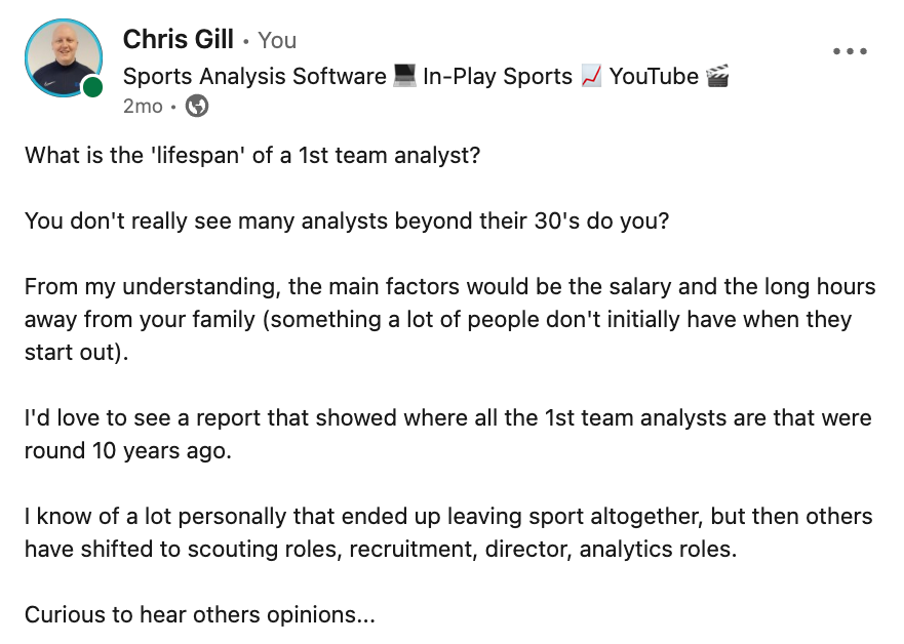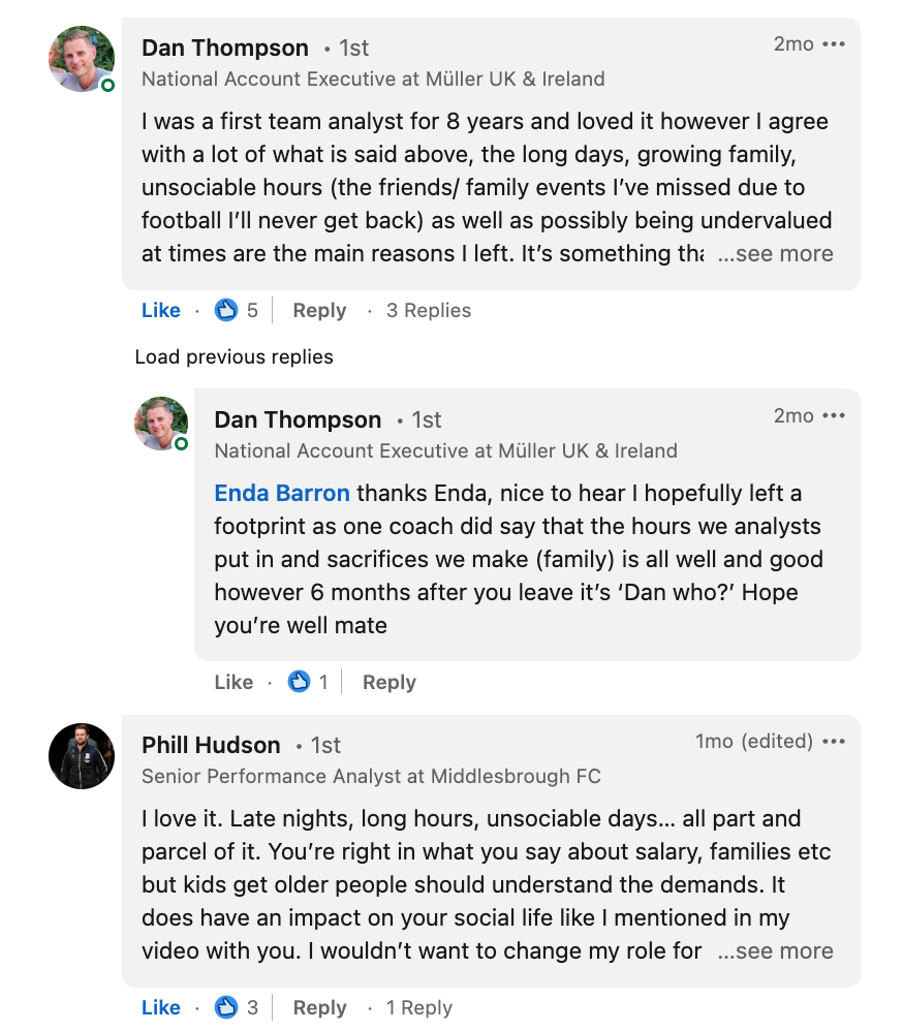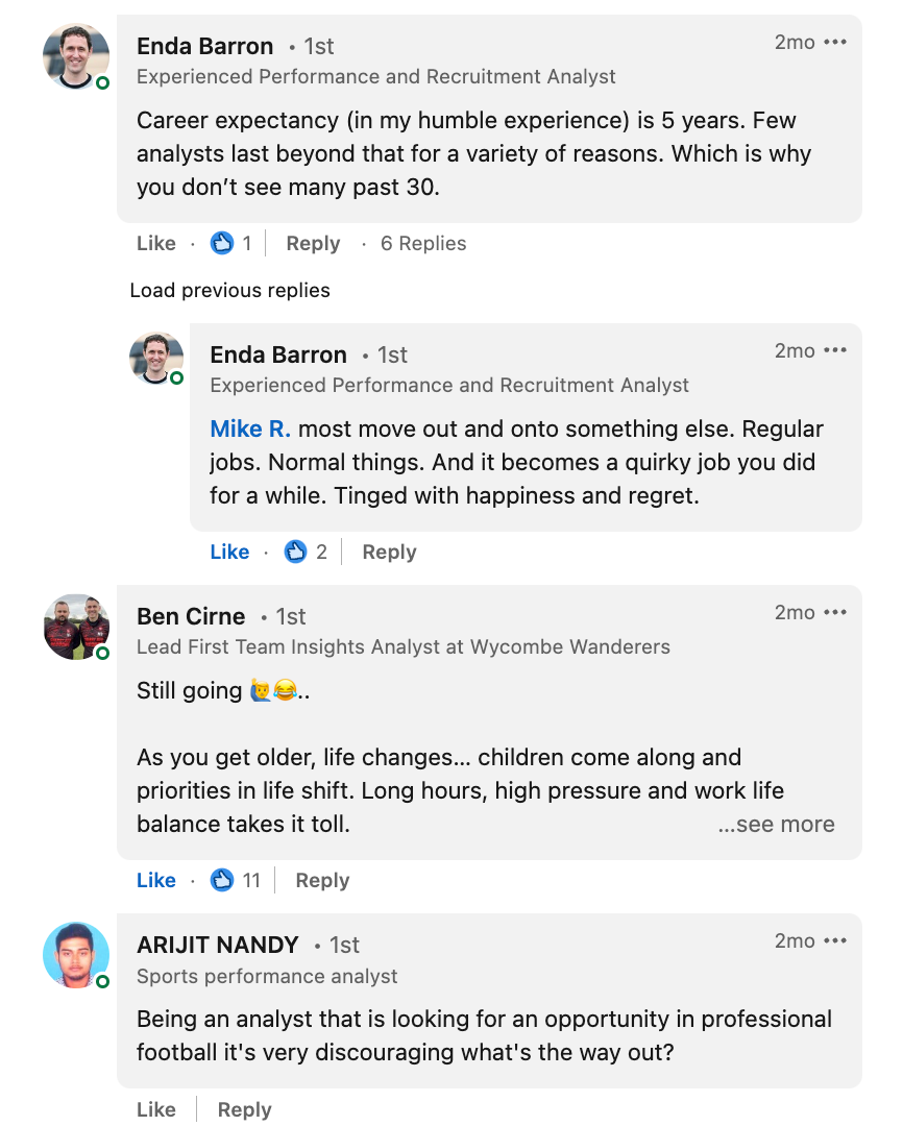The lifespan of an analyst

This article was inspired by a post I put out on LinkedIn a couple of months ago. Whilst daydreaming in the office (it doesn't happen too much) I was thinking about how pretty much none of the guys that were analysts back in the day are still in the role.
They have either moved onto other roles within football, or completely left the industry altogether. You can see the LinkedIn post below with some of the comments...



So, what are the main drivers for this lack of longevity and what sort of roles can analyst move on to if they do find themselves wanting something different?
It is often said that being an analyst (particularly a 1st team analyst that travels with the team) is a 'young man’s job' (or young woman of course!). The reason being, it involves lots of hours and plenty of travelling. Something which is a lot easier to do when you are younger, more energetic and don't have a family at home wondering where the hell you are all week.
Many analysts get into their roles in their early twenties and so by the time they are 30, they are touching a decade of this toiling schedule. They may now have a partner and a young family and being away all the time is definitely a lot less fun.
Aside from the workload, I have seen others move away to earn more money in different sectors. You should know by now that you don't become a sports analyst for the money. Well, for some, that can get old, and some people decide to utilise their skills elsewhere in return for a larger pay check (and usually less hours!).
It's not all doom and gloom though as there are many things you can do whilst remaining in sport and climbing 'up the ladder’.
A good example of this is explained in the video below where I chat with Lucy Rushton. Lucy started out as a scout and analyst in the UK and ended up moving over to the MLS with her most recent job being a General Manager!
So, what roles can an analyst move on to?
If we are just looking at other roles within sport, the natural movement that some analysts do is to shift to the scouting and recruitment side of things. Although this is no walk in the park, you at least have less travel (usually).
It makes sense too, doesn't it? As an analyst you pick up so much knowledge on how your team plays and the other players you come up against. This knowledge can really help you to build your scouting foundations.
Other examples I have seen is for ex-analysts to move to director of football or technical director roles (usually after doing some scouting) or even moving to governing bodies or external companies within the sporting sector.
I've also seen analysts niche down to be set piece coaches too.
I think it is important to understand that over time you may want to transition to something different and if you do, it is important to plan ahead of time so you can pick up the necessary skills required for the role you have in mind. Be proactive.
That's it for this one, maybe it will give you some ideas for what you want to do longer term?
Want to check out a video version of this? I got you...
📧 If you enjoyed this post, why not consider subscribing to my free weekly newsletter where I share more tips and industry insights direct to your inbox. Just enter your email address in the field below.
📺 I also have a load of useful videos over on my YouTube channel including a podcast where I interview industry professionals to share more behind the scenes knowledge, advice and ideas.
📝 If you are wanting to improve your CV for a job in sport, you can grab my free template HERE.
💻 If you are a coach or analyst on the look-out for video analysis software (that is actually affordable!) then I got you… check THIS out.
Thank you for subscribing!
Have a great day!